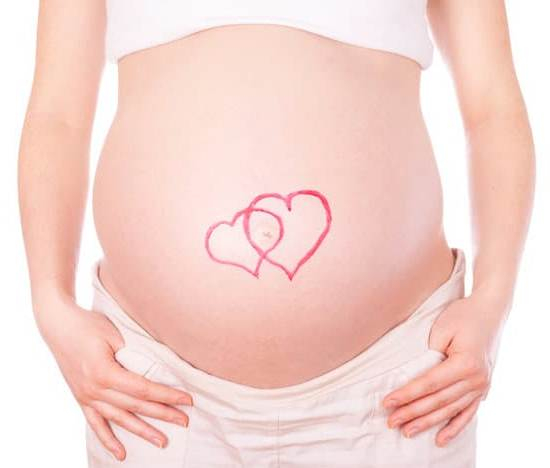Are you pregnant and wondering why is caffeine bad for pregnancy? Many women enjoy their daily cup of coffee or tea, but it’s important to understand the potential impact of caffeine on pregnancy. This article will explore the effects of caffeine on the body during pregnancy, the potential risks and complications of consuming caffeine while pregnant, as well as safe levels of consumption and alternative options for pregnant women.
During pregnancy, many women are cautious about what they put into their bodies, and for good reason. Caffeine is a stimulant that can pass through the placenta to the developing fetus, potentially affecting their growth and development. It’s important to be aware of how caffeine affects the body during pregnancy and to consider alternative options for maintaining energy levels.
Research and studies have been conducted to better understand the effects of caffeine on pregnancy. By examining this evidence, we can gain a better understanding of the potential risks and complications associated with consuming caffeine while pregnant. Additionally, hearing personal stories and experiences from other women who have avoided caffeine during pregnancy can provide valuable insight into making healthy choices for both mother and baby.
How Caffeine Affects the Body During Pregnancy
During pregnancy, many women are concerned about the effects of caffeine on their bodies and their growing baby. Caffeine is a stimulant that can cross the placenta and reach the fetus, potentially affecting its development. When consumed during pregnancy, caffeine can have several physiological effects on the body.
Firstly, caffeine is known to increase heart rate and blood pressure in both the mother and the fetus. This can lead to feelings of restlessness and anxiety for the mother, as well as potential stress on the developing cardiovascular system of the fetus. Additionally, caffeine has diuretic properties, which can lead to increased urination and dehydration for pregnant women.
Furthermore, consuming high levels of caffeine during pregnancy has been associated with an increased risk of miscarriage or preterm birth. It has also been linked to lower birth weight in infants. These potential risks highlight why it is important for pregnant women to be mindful of their caffeine intake.
| Effect | Potential Impact |
|---|---|
| Increase in heart rate and blood pressure | Feelings of restlessness, stress on fetal cardiovascular system |
| Diuretic properties | Increased urination and dehydration for pregnant women |
| Increased risk of miscarriage or preterm birth | Lower birth weight in infants |
The Potential Risks and Complications of Consuming Caffeine While Pregnant
Consuming caffeine while pregnant can pose potential risks and complications for both the mother and the developing baby. Caffeine is a stimulant that can cross the placenta, causing a rise in the baby’s heart rate and metabolism, leading to possible negative effects on fetal development. This is one of the reasons why is caffeine bad for pregnancy.
Research has suggested that high levels of caffeine consumption during pregnancy may be linked to an increased risk of miscarriage, preterm birth, low birth weight, and even stillbirth. Additionally, caffeine can also lead to sleep disturbances and contribute to increased feelings of anxiety and stress in pregnant women.
It is important for expectant mothers to be mindful of their caffeine intake during pregnancy. The American College of Obstetricians and Gynecologists recommends that pregnant women limit their caffeine consumption to 200 milligrams per day, which is about the amount found in one 12-ounce cup of coffee.
It’s essential for pregnant women to be aware of how much caffeine they are consuming from all sources, including coffee, tea, soft drinks, energy drinks, and chocolate. Keeping track of their daily intake can help them stay within safe limits.
| Potential Risks | Complications |
|---|---|
| Increased risk of miscarriage | Preterm birth |
| Low birth weight | Stillbirth |
| Sleep disturbances | Anxiety and stress |
Research and Studies on the Effects of Caffeine on Pregnancy
One study published in the American Journal of Obstetrics and Gynecology found that women who consumed more than 200 milligrams of caffeine per day (equivalent to about two cups of coffee) were at an increased risk of pregnancy loss compared to those who consumed less. Another study in the Journal of Maternal-Fetal & Neonatal Medicine suggested a potential link between high caffeine intake during pregnancy and childhood obesity.
These findings underscore the importance of understanding the potential consequences of consuming caffeine while pregnant.
Furthermore, research has shown that caffeine can cross the placenta and reach the developing fetus, potentially affecting their heart rate and metabolism. This raises concerns about the long-term effects of prenatal exposure to caffeine on a child’s health.
Given these findings, it is evident that there is a compelling need for expectant mothers to be mindful of their caffeine consumption during pregnancy in order to safeguard their own health as well as the well-being of their unborn child.
As more research continues to shed light on the implications of consuming caffeine during pregnancy, healthcare providers are increasingly emphasizing the importance of limiting or avoiding its intake altogether. Understanding the potential risks and complications associated with excessive caffeine consumption is vital for expectant mothers to make informed decisions about their dietary choices during this crucial period.
It is essential for pregnant women to prioritize their health and well-being by seeking guidance from healthcare professionals and making conscious choices to support a healthy pregnancy.
Safe Levels of Caffeine Consumption During Pregnancy
Consuming caffeine during pregnancy can pose certain risks to both the mother and the baby. It is important for expecting mothers to be aware of safe levels of caffeine consumption to ensure a healthy pregnancy.
The American College of Obstetricians and Gynecologists recommends that pregnant women limit their caffeine intake to 200 milligrams per day, which is roughly equivalent to one 12-ounce cup of coffee. Exceeding this recommended daily limit may increase the risk of miscarriage, premature birth, low birth weight, and other complications.
To put it in perspective, here are some common sources of caffeine and their approximate caffeine content:
- 8 oz brewed coffee: 95 mg
- 8 oz black tea: 47 mg
- 8 oz green tea: 28 mg
- 12 oz cola: 30-35 mg
- 1 oz chocolate: 12 mg
It’s important for pregnant women to be mindful of their total daily caffeine intake, as it can add up quickly from various sources. Reading labels and being aware of portion sizes can help in keeping track of caffeine consumption throughout the day.
In addition, some experts advise that it’s not just about the amount of caffeine consumed, but also how it is consumed. For example, consuming a large amount of caffeine all at once (such as multiple cups of coffee within a short period) may have a greater impact than spreading out the same amount over several hours.
Pregnant women should discuss their individual tolerance and consumption with their healthcare provider to ensure they are staying within safe limits for their specific situation.
Alternatives to Caffeine for Pregnant Women
For pregnant women looking for alternatives to caffeine, there are plenty of options that can provide a much-needed energy boost without the potential risks and complications associated with consuming caffeine. Here are some alternative sources of energy that pregnant women can consider:
1. Herbal teas: Herbal teas such as peppermint, ginger, and chamomile can be a great way to get a warm and comforting beverage without the caffeine. These teas can also have added benefits such as easing nausea or aiding digestion.
2. Fruit smoothies: A refreshing fruit smoothie made with fresh or frozen fruits, yogurt, and even a splash of coconut water can provide a natural energy boost without the need for caffeine.
3. Nuts and seeds: Snacking on nuts and seeds such as almonds, walnuts, pumpkin seeds, or sunflower seeds can provide a healthy dose of protein and healthy fats that can help sustain energy levels throughout the day.
4. Regular exercise: Engaging in regular physical activity such as yoga, swimming, or walking can help improve circulation and increase overall energy levels without relying on caffeine.
5. Adequate hydration: Staying well-hydrated with water throughout the day is essential for maintaining energy levels. Dehydration can lead to fatigue, so drinking enough water is crucial for expecting mothers.
Pregnant women should be mindful of their overall health and wellbeing during this critical time in their lives. By making small changes to their daily routines and opting for healthier alternatives to caffeine, they can ensure a healthy pregnancy for both themselves and their baby.
Tips for Reducing or Eliminating Caffeine Intake During Pregnancy
For many pregnant women, reducing or eliminating caffeine intake during pregnancy can be a daunting task. However, it is important to understand the potential risks and complications associated with consuming caffeine while pregnant. In this section, we will explore some tips and strategies for reducing or eliminating caffeine intake during pregnancy to ensure a healthy and safe pregnancy for both the mother and the baby.
Educate Yourself on Safe Levels of Caffeine Consumption
Learning about the safe levels of caffeine consumption during pregnancy can help you make informed decisions about your intake. It is recommended that pregnant women limit their caffeine intake to 200 mg per day, which is roughly equivalent to one 12-ounce cup of coffee. By understanding these guidelines, you can better monitor and regulate your caffeine consumption.
Gradually Reduce Your Intake
Instead of quitting caffeine cold turkey, consider gradually reducing your intake over time. This can help minimize withdrawal symptoms and make the process more manageable. Start by replacing one caffeinated beverage with a decaffeinated option each day, gradually decreasing your overall consumption until you reach a level that aligns with the recommended guidelines.
Explore Alternative Beverages
There are plenty of alternative beverages that can help satisfy your cravings for a hot or cold drink without the need for caffeine. Herbal teas, fruit-infused water, and decaffeinated coffee or tea are all great options to consider. Experimenting with different flavors and varieties can make the transition away from caffeine more enjoyable.
By implementing these tips and strategies, pregnant women can successfully reduce or eliminate their caffeine intake in order to promote a healthy pregnancy. It’s important to prioritize the well-being of both the mother and the baby by making informed choices about dietary habits during this crucial period of development.
Personal Stories and Experiences of Women Who Have Avoided Caffeine During Pregnancy
During pregnancy, many women make the choice to avoid caffeine in order to protect the health of their unborn child. This decision is not always an easy one, as caffeine can be a difficult habit to break for some individuals. However, there are numerous personal stories and experiences of women who have successfully eliminated or drastically reduced their caffeine intake during pregnancy.
The Struggle to Give Up Caffeine
For many women, eliminating caffeine during pregnancy is a challenge. Some have been lifelong coffee drinkers and find it difficult to function without their daily dose of caffeine. However, the potential risks and complications of consuming caffeine during pregnancy motivate them to make this change for the health and well-being of their baby.
Feeling the Benefits
Women who have avoided caffeine during pregnancy often report feeling healthier, more energized, and less anxious. By replacing caffeinated drinks with water or herbal teas, they are able to stay hydrated and also experience fewer instances of heartburn and insomnia. Additionally, some women find that eliminating caffeine helps them maintain a more stable mood throughout their pregnancy.
Gaining Support From Others
Many women find that having a support system during this time is crucial. By sharing experiences with other pregnant women who have also given up caffeine or speaking openly about this decision with friends and family members, expecting mothers can feel supported and encouraged in their choice to avoid caffeine during pregnancy.
The personal stories and experiences of these women serve as a reminder of the importance of making healthy choices for both themselves and their babies during this crucial time. These stories can offer encouragement and inspiration to other pregnant women who may be considering eliminating or reducing their caffeine intake.
Conclusion
In conclusion, it is clear that consuming caffeine during pregnancy can have negative effects on both the mother and the developing baby. Understanding how caffeine affects the body during pregnancy is crucial in making informed choices for a healthy pregnancy.
Research and studies have shown a link between high levels of caffeine consumption and potential risks and complications, such as low birth weight and miscarriage. This is why it’s important for pregnant women to be mindful of their caffeine intake and consider alternatives to ensure the health and well-being of both themselves and their babies.
While it may be challenging to reduce or eliminate caffeine intake during pregnancy, it is not impossible. Safe levels of caffeine consumption during pregnancy can vary, but experts generally recommend limiting daily intake to 200 mg or less. This may require making conscious choices about beverages and food items that contain caffeine, as well as exploring alternative options that can provide energy without the negative effects associated with caffeine.
Ultimately, every woman’s experience with avoiding caffeine during pregnancy will be different, but hearing personal stories and experiences from others who have successfully done so can offer encouragement and motivation. Making small changes to reduce or eliminate caffeine intake, along with seeking support from healthcare providers and loved ones, can contribute to a healthy pregnancy.
It’s important for expectant mothers to prioritize their well-being by being mindful of their caffeine consumption for the benefit of themselves and their developing babies.
Frequently Asked Questions
How Does Caffeine Affect an Unborn Baby?
Caffeine can cross the placenta and reach the unborn baby, potentially causing increased heart rate, restlessness, and abnormal sleep patterns. It can also affect the baby’s metabolism and growth.
When Is Caffeine the Worst During Pregnancy?
The first trimester is when caffeine can be most harmful as this is a crucial time for fetal development. At this stage, excessive caffeine consumption has been linked to an increased risk of miscarriage or low birth weight.
What Happens if You Accidentally Drink Too Much Caffeine Pregnant?
Accidentally drinking too much caffeine during pregnancy can lead to symptoms such as rapid heartbeat, dizziness, nausea, and anxiety. In severe cases, it can even cause pregnancy complications like preterm birth or stillbirth. If this happens, it’s important to seek medical advice immediately.

Welcome to my fertility blog. This is a space where I will be sharing my experiences as I navigate through the world of fertility treatments, as well as provide information and resources about fertility and pregnancy.





